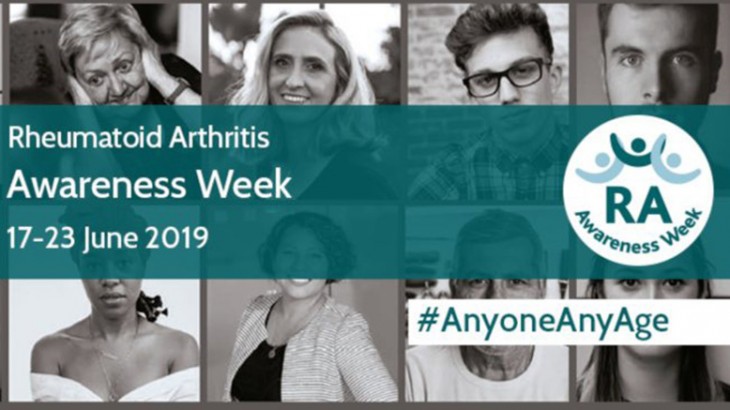#AnyoneAnyAge

This week is Rheumatoid Arthritis (RA) Awareness Week, an annual event run by the National Rheumatoid Arthritis Society (NRAS), to raise awareness of the condition and the impact it has on sufferers and their families.
RA is an autoimmune disease. This means your immune system – which usually fights infection – attacks the cells that line your joints by mistake, making the joints swollen, stiff and painful. Over time, this can damage the joint itself, the cartilage and nearby bone.
It's not clear what triggers this problem with the immune system, although you're at an increased risk if:
- you are female
- you have a family history of rheumatoid arthritis
- you smoke
Unlike osteoarthritis, which normally affects older people, RA can affect any age group. Some people with RA also experience problems in other parts of the body, or more general symptoms such as tiredness and weight loss. RM can be a hidden condition, meaning that people do not always realise that sufferers are living with the disease.
NRAS has a wide range of information about RA, as well as guidance surrounding treatment and living with the condition. Case studies, local support, volunteering opportunities and events information can also be found at www.nras.org.uk/ or by calling their freephone helpline on 0800 298 7650. Further support can be found at www.versusarthritis.org/get-help/.
Joint care at work
If you have arthritis, as well as following your treatment schedule, it's important you look after your joints at work to avoid further damage. Try to reduce the stress on your joints while carrying out everyday tasks like moving and lifting.
- use larger, stronger joints as levers – for example, take the pressure of opening a heavy door on your shoulder rather than on your hand
- use several joints to spread the weight of an object – for example, use both hands to carry heavy items when possible
- don't grip too tightly – grip as loosely as possible or use a padded handle to widen your grip.
If you are having difficulty with aspects of your work due to your condition you should speak to your line manager about suitable modifications.
Further advice, guidance and support for colleagues can be found at www.feelingfirstclass.co.uk, using the code FFC1 to register. You can also email disability.helpline@royalmail.com or phone 0114 241 4731 or 0800 028 6142.
You should see your GP if you have persistent symptoms so that they can confirm the diagnosis and prescribe any necessary treatment.



